-
The Washington Post reports Limits on greenhouse gas emissions have wide support. “Three-quarters of Americans think the federal government should regulate the release into the atmosphere of greenhouse gases from power plants, cars and factories to reduce global warming, according to a new Washington Post-ABC News poll, with substantial majority support from Democrats, Republicans and independents.”
“But fewer Americans — 52 percent — support a cap-and-trade approach to limiting greenhouse gas emissions similar to the one the House may vote on as early as tomorrow.”
Earlier this week, the Union of Concerned Scientists selected essays and photos from 67 Americans and published them in a new online book, Thoreau’s Legacy: American Stories about Global Warming. In her introduction, novelist Barbara Kingsolver writes:
Even the architecture of our planet-climate, oceans, migratory paths, things we believed were independent of human affairs-is collapsing under the weight of our efficient productivity. Twenty years ago, climate scientists first told Congress that carbon emissions were building toward a disastrous instability. Congress said, We need to think about that. Ten years later, the world’s nations wrote the Kyoto Protocol, a set of legally binding controls on our carbon emissions. The United States said, We still need to think about it. Now we watch as glaciers disappear, the lights of biodiversity go out, the oceans reverse their ancient order.
Back in Washington the House is scheduled to vote on cap-and-trade legislation said to be aimed at reducing U.S. greenhouse gas emission. McClatchy adds Rep. Ed Markey (D-MA) is confident the Climate bill will pass the House on Friday. Markey believes the legislation will lead to a “green revolution”. “Republicans, with few exceptions, oppose the bill.”
The Guardian reports Markey as having said, “this legislation is a game changer of historic proportion… The whole world is waiting to see if Barack Obama can arrive in Copenhagen as a leader of attempts to reduce green house gas emissions.”
“The bill, now swollen to about 1,200 pages, would bind the US to reduce the carbon emissions from burning oil and coal by 17% from 2005 levels by 2020 and more than 80% by 2050.”
Four at Four continues with greenhouse gas emissions slowed by cut in oil use, an update from Iraq, and sharks are in a world of hurt.

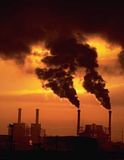


 When Sylvia Earle began diving in 1952, the ocean was pristine. These days, things are different.
When Sylvia Earle began diving in 1952, the ocean was pristine. These days, things are different.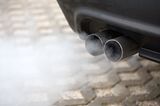


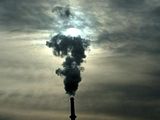
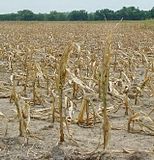 In its
In its  The Guardian adds the report “
The Guardian adds the report “ Crop scientists fear the Ug99 fungus could wipe out more than 80% of worldwide wheat crops as it spreads from eastern Africa. It has already jumped the Red Sea and traveled as far as Iran. Experts say it is poised to enter the breadbasket of northern India and Pakistan, and the wind will inevitably carry it to Russia, China and even North America — if it doesn’t hitch a ride with people first.
Crop scientists fear the Ug99 fungus could wipe out more than 80% of worldwide wheat crops as it spreads from eastern Africa. It has already jumped the Red Sea and traveled as far as Iran. Experts say it is poised to enter the breadbasket of northern India and Pakistan, and the wind will inevitably carry it to Russia, China and even North America — if it doesn’t hitch a ride with people first.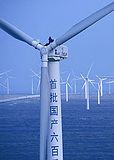 A game-changing moment could be upon us… This is no short-term economic boost or sop for climate change negotiations; it is a long-term investment aimed at making China a dominant force in the global low-carbon economy for decades to come. Power plays do not come much bigger.
A game-changing moment could be upon us… This is no short-term economic boost or sop for climate change negotiations; it is a long-term investment aimed at making China a dominant force in the global low-carbon economy for decades to come. Power plays do not come much bigger.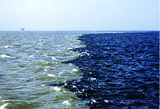 Meanwhile, McClatchy reports Scientists state
Meanwhile, McClatchy reports Scientists state